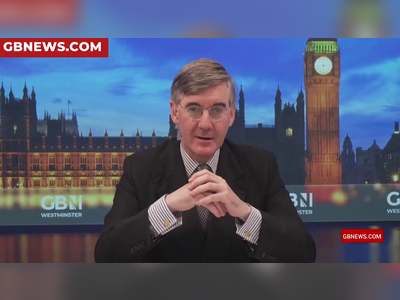
Coronavirus: how much of Covid-19’s social distancing is here to stay?
The devastating coronavirus pandemic has forced the world into an unprecedented social experiment: a “new normal” of social distancing.
In an effort to contain the spread of Covid-19, the pneumonia-like disease caused by the virus, governments have first encouraged, then compelled people to practise social distancing, or keeping a physical distance between individuals. People have been told to stay and work at home whenever possible, avoid crowded areas and suspend social gatherings – with varying success.
Behavioural scientists say social distancing is challenging for humans, as innately social creatures, and has come with different costs for the world’s poor, those providing frontline and essential services and people vulnerable to isolation or to domestic violence.
It has forced students into virtual classrooms, customers to stand metres apart at grocery stores, employees to balance child care with working from home, social gatherings – including birthdays, church services, dates and even funerals – to be conducted by video.
“Humans are social animals; even the grumpy ones like to be able to complain to their friends and there are very few true hermits in society,” David Savage, associate professor of behavioural economics at the University of Newcastle in Australia, said. “We are seeing the rise of virtual socialising to replace the physical.”
After the pandemic comes to an end, experts say people will happily abandon social distancing practices, but some social behaviours and norms may be forever changed. Working from home may be more common. Face masks may be normalised in places where they were initially rejected. More lectures, meetings and conferences may be held virtually. Hand washing may become second nature.
In Hong Kong, where the legacy of the 2002-03 outbreak of the severe acute respiratory syndrome (Sars) coronavirus remains strong, the public was quick to adopt face masks, teleworking and social distancing when the outbreak first began.
But after a few weeks, experts began to warn that people were letting their guard down. The government had to adopt stricter measures, including banning gatherings with more than four people, ordering the closure of venues such as bars and gyms, and ruling that restaurants could not be more than half full.
Donald Low, a behavioural economist at the Hong Kong University of Science and Technology (HKUST), said that asking people to work from home and minimise socialising imposed “quite a big cognitive and behavioural burden” because it required people to give up existing habits, so after a while many would experience behavioural “fatigue”.
“Social distancing is a big ask,” he said. “After a month or so of social distancing, or working from home, not meeting friends and relatives, in the absence of replacement behaviours or replacement habits, is very tiring, and people are going to revert to their old, previous habits.”
But widespread distrust in the Hong Kong government’s ability to handle the outbreak, particularly after anti-government protests since last summer, meant that people had voluntarily taken pre-emptive actions before being ordered to. This may help them to sustain some of the behavioural changes even after the government says they are no longer necessary, he said.
New habits, such as online teaching and teleconferencing, can easily be incorporated into people’s lives post-pandemic, he said.
“We won’t just blindly go back to business as before,” Low said. “This has been the most sustained experiment in working from home, social distancing, e-teaching and so on, and we should try to keep some of the benefits.
“We would be very happy to give up social distancing, although things like mask wearing and regular handwashing are things that we would keep.”
Adoption of social distancing globally has varied. In worldwide survey of attitudes by researchers, including from the University of Warwick, Oxford University and Princeton University, more than 80 per cent of people said they were staying at home, and more than 90 per cent said they were not attending social gatherings. The highest levels of social distancing were in countries including Argentina, Ecuador and the Philippines, with lower levels in Belarus, Russia and the Dominican Republic.
In the Philippines, for instance, the government has taken aggressive quarantine measures to ensure that people practise social distancing, with individuals also required to maintain at least one metre of distance from others. Police have arrested hundreds for violating distancing and quarantine regulations.
Ronald Del Castillo, professor of public health at the University of Philippines Manila, said that, heading into their fourth week of quarantine, most Filipinos were cooperating with calls to stay at home.
“There was some confusion in the first few days – perhaps a bygone era now – but that is not surprising,” he said. “People were expected to behave in a way that is new for most of us. We have grown accustomed to the long queues at the grocery store and having one to two metres between you and the next customer. There is now a ritual to something as benign as going to the pharmacy.”
But social distancing was still a privilege, with poorer Filipinos living in overcrowded spaces and many shut out from their livelihoods, Del Castillo said. If the restrictions were eased, the behavioural changes would be unlikely to last, but there would be long-term psychological consequences, he said.
“When the quarantine is lifted, many of us will continue to wash our hands for 20 seconds and many of us will still wear the masks in public, and maybe we’ll continue to flinch when someone sneezes or coughs,” he said. “But over time, we will go back to old habits – I think more so if a vaccine becomes widely available.”
In Israel, stricter social distancing regulations in recent weeks have banned people from leaving their homes except for essential services and work. Face masks have been required in public, and limits set on numbers attending prayers.
Ido Erev, head of behavioural science at the Israel Institute of Technology, said calls in Israel for social distancing during the outbreak had initially had “limited effect”, with particular difficulty for ultra-Orthodox Jewish communities, many of whom live in small flats with several children.
“To address this problem, our government chose to take extreme measures and try to imitate the enforcement policies that were found to be successful in East Asia,” he said.
In the longer term, Erev said he anticipated that face masks would be more normalised in Israel, and that there would be greater acceptance of social monitoring and surveillance for public health reasons, and greater adoption of technology for work and for conferences.
“Because all your friends use it, you will also use it,” he said. “Maybe this new routine will make us travel less, do things more effectively, care more about the environment – not because we want to do it, but because norms will change.”
In South Africa, police and military have patrolled the streets to enforce the continuing national lockdown, which has closed all non-essential establishments. Bankole Falade, social psychologist at Stellenbosch University in South Africa, said social distancing measures had been “generally successful”, save for some “pockets of resistance”, with the government conducting campaigns to educate the public about the need to stay at home.
Africa has had experience of viral outbreaks and selected quarantine, from the continent’s 2014-16 Ebola epidemic, but the scale of the Covid-19 pandemic may have a long-term effect on actions such as handwashing, he said.
“It is anticipated that the world will not be the same after this crisis, and the use of online tools, which has increased significantly, may be retained for the long run,” he said. “And as we see after every Ebola crisis, the halt in handshaking in churches is temporary; normal practices will resume after this crisis.”
Even as “social distancing” has become a global buzz-phrase, photos have been published showing people still flocking to parks and beaches. Savage, from the University of Newcastle, said social distancing calls in Australia were generally successful, but there were “definitely elements of every community that view the pandemic as trivial and social distancing an inconvenience”.
“Unfortunately, you could identify this group’s risk profile fairly easily by their behaviour – they are either risk-seekers, as opposed to the majority of the population who are risk-averse, or ignorant, so they don’t think that the virus is real or a threat,” he said.
People’s responses after the pandemic will depend on their personality types, how closely the crisis has affected them, and how long lockdowns last, he added.
Shane Timmons, from the behavioural research unit at the Dublin-based Economic and Social Research Institute, said that in Ireland, there were observable norms such as people maintaining two metres of distance when out for a walk or run. People have been found to be more willing to change their behaviour when reminded of the need to protect the vulnerable, including the elderly and health care workers, and when they have plans to still keep in contact with others, he said.
“Social distancing is extreme, and social isolation in particular can have negative consequences on mental health, so it’s important that people try to stay connected with others,” he said. “I think Ireland has been quite similar to other countries in how people have adapted to new ways of socialising – teleworking for anyone in a job where it’s possible is now commonplace, and groups of friends are arranging games nights and quizzes over video conferencing technology.”
It was difficult to say whether there would be long-term changes, but perceptions of practices such as wearing face masks, which were not part of Ireland’s culture, have changed, Timmons said.
Despite the world’s varied social conventions, the pandemic has forced everyone into the brave new world of distancing to try to halt the deadly virus.
“When it comes to fear, that’s a universal response,” Low, from HKUST, said. “Whether you are an Italian or a Hongkonger, your amygdala – the fear centre in the brain – is the same size. Evolutionarily speaking, psychologically speaking, we are all the same.”










